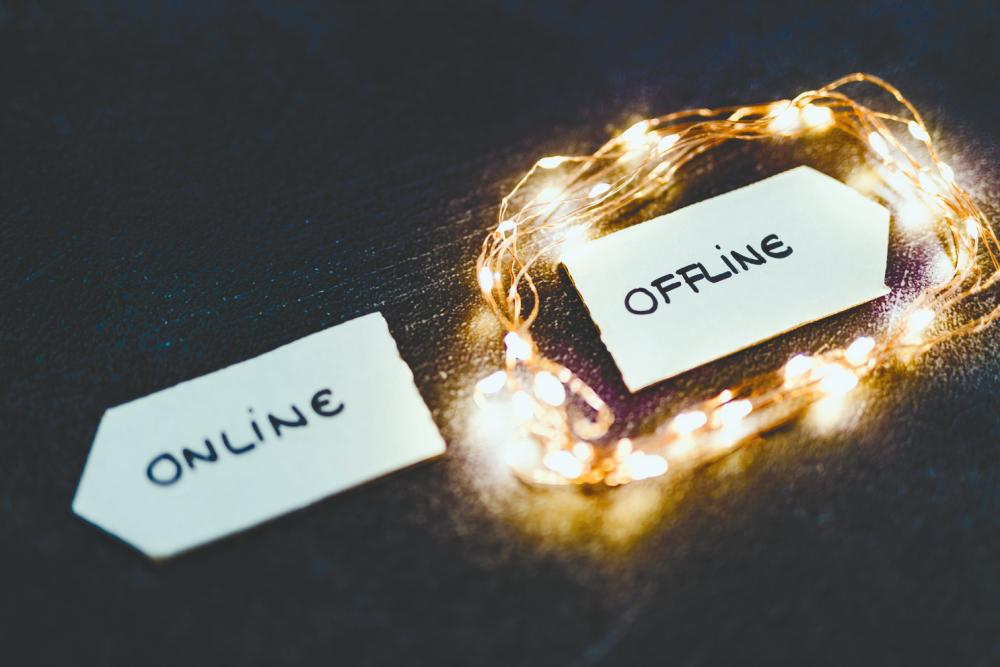EXCESSIVE screen time has become a grave concern. Undoubtedly, technology has integrated itself into every part of our lives. While technology provides convenience, our addiction to screens can damage our productivity and happiness.
Following the Covid-19 pandemic, more and more people – including children – have been fully immersed in digital content.
For some, work becomes addicting. You can see people seemingly manacled to their mobile phones and hunched over their laptops in cafes, working non-stop and burning the midnight oil. While hard work leads to success, too much screen time can affect your sleep, lead to chronic neck and back pain, depression and anxiety.
Meanwhile, some have a constant need to check social media every time their phone vibrates, and often forget the importance of living in the moment. For instance, instead of creating memories, we are busy documenting and uploading precious moments to social media.
Time passes swiftly, and mindful living should be a priority. It’s time to unplug yourselves from your screens and take control of your life. You should try to relax as much as you work, and never disregard the importance of disconnecting and unplugging every once in a while.
Switch it off
The first step to unplugging yourselves from your screen is to turn off notifications. Whenever our phone vibrates, we are tempted to check our phones. When you’re not obligated to work, answer emails, texts, or phone calls, opt to switch off your phone. By doing these, you will feel more relaxed and won’t get distracted easily.
Journal your thoughts
Journal is the perfect tool to increase your productivity. Journals act as a stress and anxiety reliever. One of the best methods to relieve your racing mind is to write it out. This method is known as “stream of consciousness journaling”. Stream of consciousness journaling is when you pen down everything that has been fogging your mind. Journaling your thoughts allows you to process things one step at a time.
To illustrate, you can explore your ideas, reflect on your thoughts and list down things that make you happy. When you write about the highs and lows in your daily life, it’ll aid you in obtaining various perspectives on your experiences and you’ll be able to find lessons in them.
It’s nature time!
City views can be breathtaking but they’re nothing compared to nature’s beauty. We spend so much of our time indoors that we forget what fresh air feels like. One of the best ways to escape the screens is to go on a hike or a walk in the park. Step outdoors, be in the moment, inhale fresh air and embrace nature. Soaking up warm rays of the sun gives you the extra vitamin D that you need, which is great for both your bones and your mood.
Card games
Card games continue to stand the test of time. Unbeknownst to many, card games have their own mental health benefits. For instance, card games can provide players with a mental health boost. If done with a group, his leisure activity is often packed with chatter and laughs that’ll certainly leave you in a good mood long after it ends.
Another benefit is it’ll help you enhance your memory since most card games require memorising and you’ll be exercising your short-term memory. Consequently, you’d be improving your memorising ability.
Venture into new hobbies
Spark your interests and start exploring an unplugged hobby. New hobbies are perfect if you’re really looking to disconnect yourself from the digital world. With our never-ending tasks, chores, and errands, venturing into new hobbies can keep you occupied and you won’t be busy searching for your phone. Some choice hobbies include knitting, baking, drawing, painting, or playing a musical instrument.
When we engage in our hobbies weekly, it gives you a purpose in life and helps you find your zen. To further illustrate, it gives you something that you can look forward to every day, and lets you accomplish new goals or solve challenges. Aside from that, it’ll help you build resilience in life. If you’re a beginner in baking, you may not succeed the first time but if you stick to it, you’ll find yourself learning how to make it a success.
Hobbies improve your creativity as well. Most hobbies involve art. This way, you’d get to explore your creative side and skills that you didn’t know you had!
Meditation
Breathe. Meditating will help you reconnect your body and mind. It helps you to declutter as well as refresh your mind and release negativity. By meditating, you’d be mentally prepared to cross things off of your to-do list and succeed in it. Sit comfortably, shut your eyes, listen and focus on your breathing. Frequent practice of meditation is associated with better immunity and improved sleep.
Get lost in a book
Ever since the pandemic turned our lives upside down, when was the last time we had a date with a good book? Indulging yourself in fiction books will provide you serotonin and act as an escape from reality. Reading has also been proven to help you in communicating and understanding other people better, keeping your brain fit, changing your perspectives, and growing as an individual.
Goodnight!
When it’s bedtime, switch on the Do Not Disturb mode on your phone, or, even better, switch it off. Catch up on the sleep that you’ve missed out on. Make it a habit to stay away from your electronic devices one hour before going to bed, as winding down will never be an easy journey especially when your mind is on the run. Sleep experts suggest adults need seven to nine hours of sleep every night. A good night’s sleep helps your body and mind relax as well as recover from a long day.














